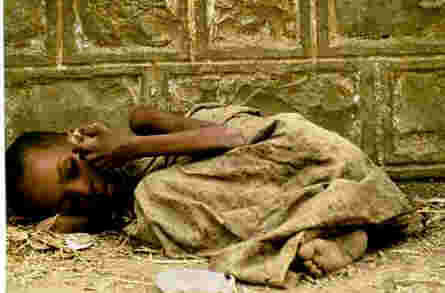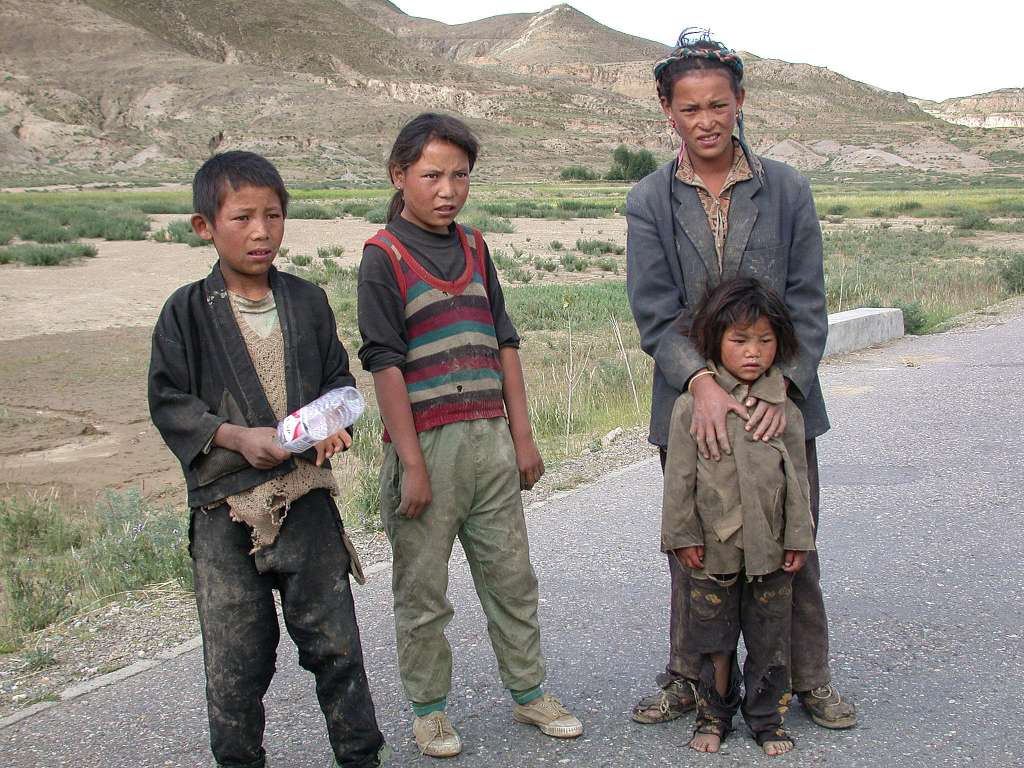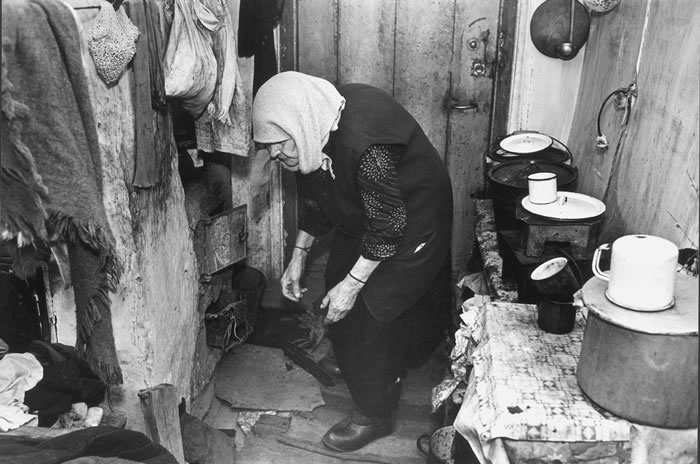HT: HTOC

The statistics are numbing. The United Nations Millennium Project estimates that every day 800 million people go hungry, with almost half of them young children. Every 3.6 seconds another human being dies of starvation. Every 30 seconds a child dies in Africa of malaria. Some 1 billion people live on less than one dollar a day, and more than twice that do not have access to basic water sanitation. Over a hundred million children never attend any school and 6,000 people die everyday from HIV/AIDS. The list can go on and on to the point where the numbers become almost surreal and meaningless. Jesus wasn’t kidding when He said we would always have the poor with us.
But Jesus Christ also began his ministry saying “the spirit of the Lord is upon me, because he anointed me to preach the gospel to the poor, he has sent me to proclaim release to the captives, and recovery of sight to the blind, to set free those who are oppressed” (Luke 4:18 NASB). So if we’re supposed to imitate Christ, what does God expect from us? What exactly are we supposed to do with all these poor?
When the magi came to see the newborn Jesus, they brought rich gifts for the One they knew was the Messiah. Yet Jesus said, “the foxes have holes and the birds of the air have nests, but the Son of Man has nowhere to lay His head” (Luke 9:58 NASB). Very quickly we have forgotten and neglected the essential truth of Christ’s initial message and the reason for His birth. Paul the apostle writes, “you know the grace of our Lord Jesus Christ, that though He was rich, yet for your sake He became poor, so that you through His poverty might become rich” (2 Corinthians 8:9 NASB).
Our mission to the poor of this world cannot be a department or a committee of our Church. The poor must define who we are as Christians otherwise we will continue to be ignored or at best tolerated. Christ’s mercy and compassion to the poor was so inclusive that it was threatening. We can’t live life the way Christ did and we can’t believe the way He expects us to if our TV’s, SUV’s, PDA’s and 401K’s are blinding us from seeing Christ in the poor.
Christ waits today under the refuse that covers the poor for our best gifts the way He waited for the magi to bring their finest gifts when He was a homeless child so long ago. Unless the Church goes “out at once into the streets and lanes of the city and bring in here the poor and crippled and blind and lame” (Luke 14:21 NASB), the world will see through our greed and hypocrisy and our pews will continue to ring hollow.
When our possessions begin to own us and blind us to the misery that surrounds us, then we are in danger of losing it all because our hording and spending on more and more things for ourselves blocks us from genuinely responding to the gospel that Jesus preached. The strength of our compassion for the poor either reveals or conceals God’s kingdom come both now and in the future. Quoting the Roman Emperor Julian, Stephen Neill writes in his book, A History of Christian Missions, the epic impact that the early Christians had on the world was “through the loving service rendered to strangers … [and that they] care not only for their own poor but for ours as well; while those who belong to us look in vain for help that we should render them.”
Time and space it seems have eroded the unimaginable sacrifice of Christ accepting to be born in a barn full of animals as a child so that we might live. God wants that sacrifice to be part of everyone He has created. It is a love beyond human credibility. It is a love that Christ freely gives us but also asks of us, that we too learn to love the way He does.
In spite of our selfishness, God not only endures us, He loves us. But it is this merciful love that God shines and rains on everyone, even the undeserving, that must compel us to act the same way. Loving the poor is not just about superficial generosity, but about a generosity saturated in joy.
Giving generously means that it impacts our lifestyle. It has to hurt a little. It means being content with the abundance we have, denying our wants and sometimes even our needs and sharing the rest with the needy.
Leo the Great wrote that “it is not only spiritual wealth and heavenly graces that are received from God’s hands; earthly and material riches too flow from His bounty, and therefore it is with justice that He will ask an account of them, since He himself has not so much given them to be possessed as put them in trust to be administered. Justly and wisely, then, must we use the gifts of God, lest the means to good works should become a cause of sin.” God has blessed us for this purpose, so that we can give and give more generously:
“God can pour on the blessings in astonishing ways so that you’re ready for anything and everything, more than just ready to do what needs to be done. As one psalmist put it, ‘He throws caution to the winds, giving to the needy in reckless abandon …’ This most generous God … is more than extravagant with you. He gives you something you can then give away, which grows into full-formed lives, robust in God, wealthy in every way, so that you can be generous in every way, producing with us great praise to God” (2 Corinthians 9:8-11 MSG).
God’s special attention to the poor is not because of their piety but precisely because they are poor, helpless, defenseless and deserving of mercy. This is why John of Kronstadt wrote “Your labours are generously rewarded; be generous to others. They are not rewarded in accordance to their merit; do not give to others in accordance with their merit, but for their need’s sake.” It is God’s special attention to those that are in need of mercy that must make the poor the special attention of our Christian life. We have no choice in the matter. Our very judgment and salvation hang on our outreach and mercy to those in need:
“‘When did we ever see you hungry or thirsty or homeless or shivering or sick or in prison and didn’t help you?’ He will answer them, ‘I’m telling the solemn truth: Whenever you failed to do one of these things to someone who was being overlooked or ignored, that was me-you failed to do it to me’” (Matthew 25:44-45 MSG).
Giving generously is not so much about how much you give, but how you give it. Paul the Apostle writes, “You must each decide in your heart how much to give. And don’t give reluctantly or in response to pressure. ‘For God loves a person who gives cheerfully.’ And God will generously provide all you need. Then you will always have everything you need and plenty left over to share with others” (2 Corinthians 9:7-8 NLT).
Archimandrite Vasileos of Stavronikita wrote in his wonderful book, Hymn of Entry that the constant giving away of our wealth is what gives us life: “This ceaseless sale is an offering for us to give to the ‘poor.’ This is how treasure is laid up in heaven; and that tr easure is something we must not and cannot sell or give to anyone, because it belongs in its entirety to everyone.” Only God can grow the merciful, embracing heart you need to be compassionate and merciful as He is.
easure is something we must not and cannot sell or give to anyone, because it belongs in its entirety to everyone.” Only God can grow the merciful, embracing heart you need to be compassionate and merciful as He is.
Poverty is not only a social and economic problem; rather it has its roots in our spiritual paralysis first as Christians and then as a people. It is our spiritual renewal that will change the life of the poor, one malnourished and diseased face at a time. We are not going to serve the poor beyond our Christmas donation unless we change our lifestyle and begin to live a sacrificial life. A life where it is no longer the accumulation of more things that matters most but living a life that matters to the world, that touches lives, and that holds the bruised hand of God in the flesh and bones of the poor. These are the things that are worthy of lifetime.
John Kapsalis has an M.T.S from Holy Cross Greek Orthodox School of Theology.
No comments:
Post a Comment